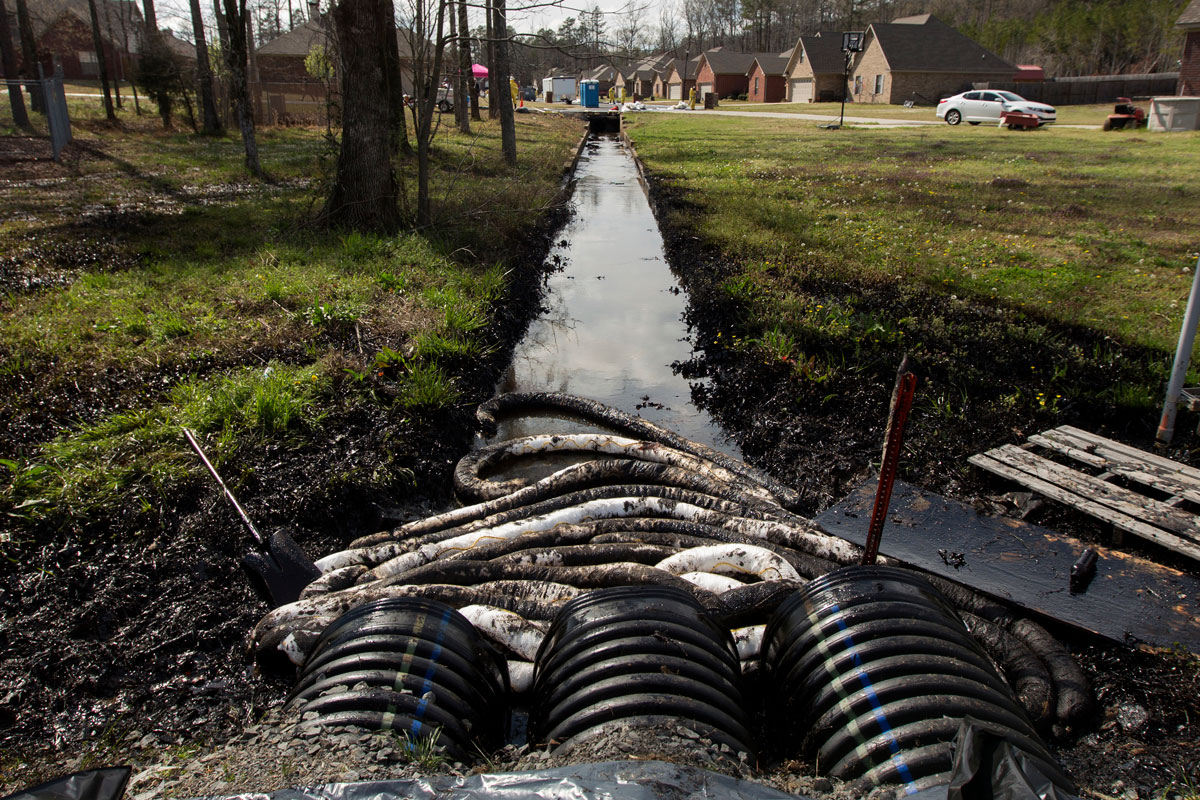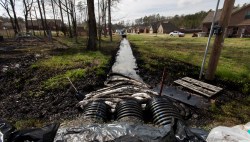As the Obama administration mulls approval of the Keystone XL pipeline that would carry tar-sands oil from Canada to Gulf Coast refineries, the heavy toxic gunk is already spilling out over America.
Last Wednesday, a southbound train carrying Canadian oil derailed in Minnesota, spilling about 15,000 gallons of tar-sands crude — described by The Washington Post as “a mixture of heavy bitumen and lighter dilutents.”
Two days later, an ExxonMobil pipeline carrying tar-sands oil burst beneath a suburban neighborhood in Arkansas. The exact size of the spill hasn’t yet been determined, but ExxonMobil says it’s preparing to be able to clean up 420,000 gallons, though it doesn’t believe the spill is that large. The oil flooded yards and streets and led to the evacuation of 22 homes in Mayflower, a small community about 20 miles northwest of Little Rock.
Watch a video of the spill:
[An ExxonMobil] spokesman confirmed the line was carrying Canadian Wabasca Heavy crude. That grade is a heavy bitumen crude diluted with lighter liquids to allow it to flow through pipelines, according to the Canadian Energy Pipeline Association (CEPA), which referred to Wabasca as “oil sands” in a report.
You may recall that this is not Exxon’s first major oil spill. Just last week, the U.S. Department of Transportation fined the company $1.7 million for safety violations that led to a 2011 oil spill in the Yellowstone River. (As a point of reference, ExxonMobil’s profits last year were $44.9 billion.)
Tar-sands oil is especially potent stuff. It’s heavier than standard crude, which causes it to quickly sink and complicates cleanup efforts. It is cut with cancer-causing chemicals such as benzene to thin it out so it can flow through pipes.
The North American oil boom has maxed out the capacity of pipelines that carry the material south to refineries along the Gulf of Mexico, so oil companies have begun loading their toxic cargo onto trains even as they lobby the U.S. government to approve Keystone XL.
Some Keystone boosters argued that Wednesday’s train derailment and spill in Minnesota showed the urgent need for the pipeline, because pipelines are supposed to be safer than train shipments.
After Friday’s pipeline spill in Arkansas, that argument looks full of holes.
When it comes to transporting tar-sands oil from Canada to Gulf Coast refineries, it seems that the only safe option is to not transport it at all. Leave that shit in the ground and plant some wind turbines and solar panels over it.




